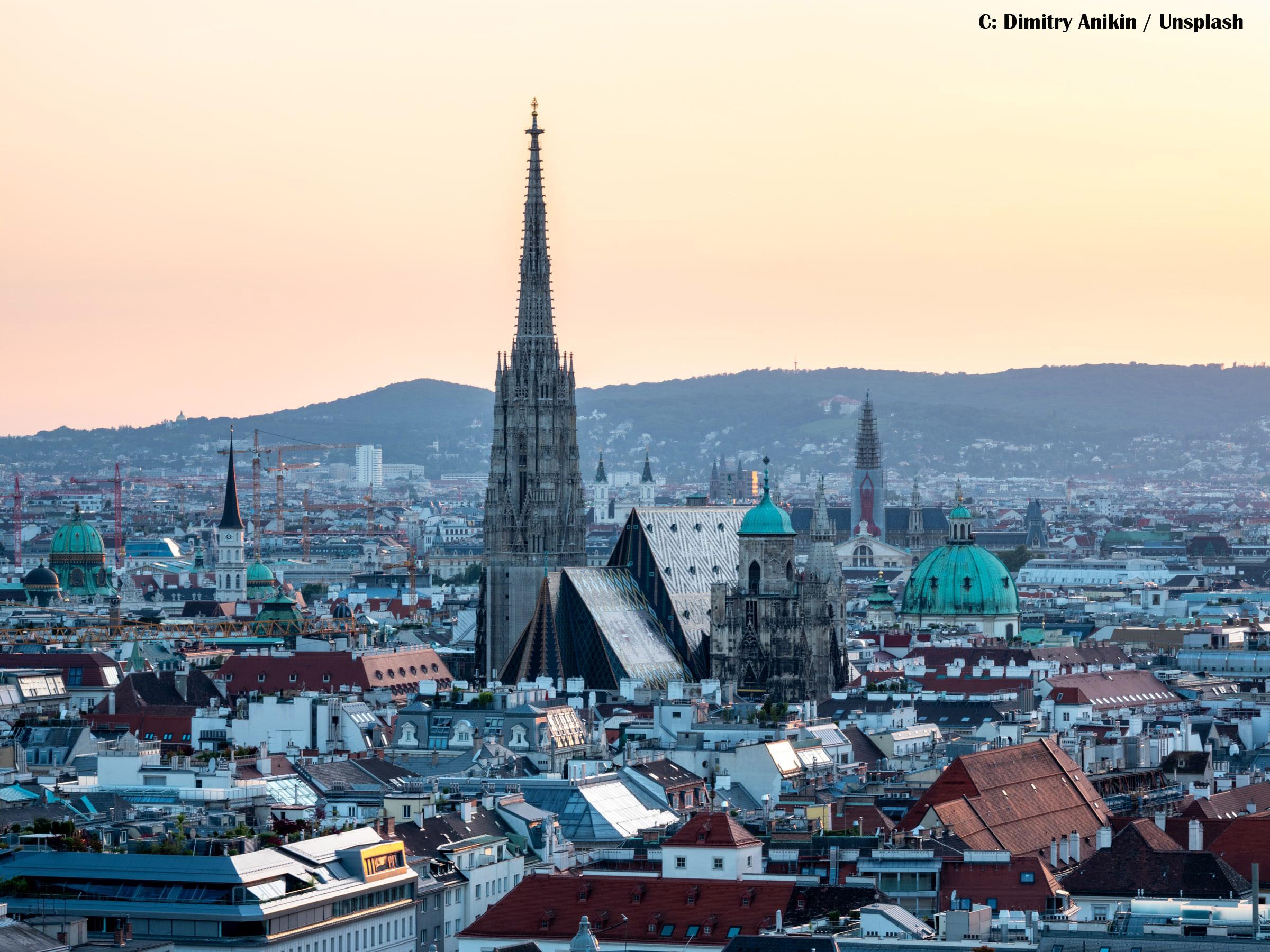
"SPORT IM ZENTRUM 2021" welcomes 90 participants

IAKS Austria hosts conference on digitalisation and sustainability
On the 2nd of September 2021, IAKS Austria organised a successful inaugural event at the Technology Centre in the Seestadt district of Vienna. Around 90 participants attended numerous talks, case studies and a lively panel discussion involving high-calibre experts from the fields of politics, the events industry, architecture and urban planning, sports federations, elite sport and sports clubs, new media and product development.
Architect DI Harald Fux (President of IAKS Austria), Dr. Stefan Kannewischer (President of IAKS International), Mag. Anatol Richter (Senate Councillor and Head of Sport Vienna) and Section Head Philipp Trattner (Head of Section II - Sport at the Federal Ministry for Arts, Culture, the Civil Service and Sport) gave the opening address.
"Sport binds us together": Harald Fux emphasised the importance of sports facilities and their (continued) development in the context of societal change as a whole. The two representatives from the Senate and Federal Ministry explained the political basis for sports development planning and the responsibility the Federal and State Government bears for ensuring its success.
Sustainability and digital innovations in the sports venue construction sector
In his keynote speech, Sepp Hackl from the Federal Ministry of the Environment called for decisive action when it comes to sustainability in the sports venue construction sector. He stressed the importance of holistic approaches to sports planning, a spirit of partnership and interdisciplinary cooperation, and the resultant impact of sports facilities on environmental and social factors.
How the topic of sustainability can be incorporated into club structures at the grassroots sports level was elucidated by Karl-Heinz Weiland. The best practice example of BT Füchse, Austria's most sustainable sports club, suggested ways in which theory could be successfully put into practice by setting clear goals and taking one step at a time.
In his talk about the concept and structures of the Johan Cruijff ArenA, Sander van Stiphout examined various sustainability aspects within the broader context. Interaction of the sports facility with its surroundings, involvement of the cities and usage in-between sporting events are essential. The social value is increased and "icons of sustainability" created as a result. Dr. Gerhard Schuster underscored this sentiment with examples from the Seestadt venue and the existing infrastructural and conceptional prerequisites that are crucial for the success of sports facilities.
Talks on sustainability in the context of large events and digitalisation by representatives from Rocktopus Events, Venuzle and SignD Identity showed that nowadays, digitalisation and sustainability (must) go hand in hand.
Sport and environment – Sustainable energy concepts for sports venues
Christian Siegel (DOSB) outlined scenarios and trends in the field of sport development that take account of current matters, such as the impact of corona on the world of sport. In addition to numerous potential opportunities, future requirements and guiding principles were deduced as well.
In the case studies, the neeom Group, Kuster Energielösungen, ASCR Aspern Smart City Research, Rabmer Gruppe, Huemer Group and App and Move presented projects that illustrate various ways in which sustainable concepts could be implemented in practice.
The sporting world of tomorrow – Trend sports and initiatives forum
The constructive panel discussion, involving spirited audience participation and moderated by Floriam Ram (ÖBSV), covered such topics as trends, sustainability, gender & diversity, digitalisation and (public) infrastructure in light of the drive to promote physical activity.
The groundwork was laid beforehand by Patrick Huber (Trailcenter Hohe Wand Wiese), Dirk Scheumann (Schneestern), Claudia Koller and Caroline Weber (100 % Sport) and Heinz Palme (Padbol Österreich) with their talks on the compatibility of trend and action sport with sustainability and environmental friendliness, as well as the development of sports venues as safe spaces for all.
Conclusion: Sport and the associated infrastructure have an influence on social, societal, economic, regional, global, cultural and long-term environmental factors, causing them to become interwoven.
